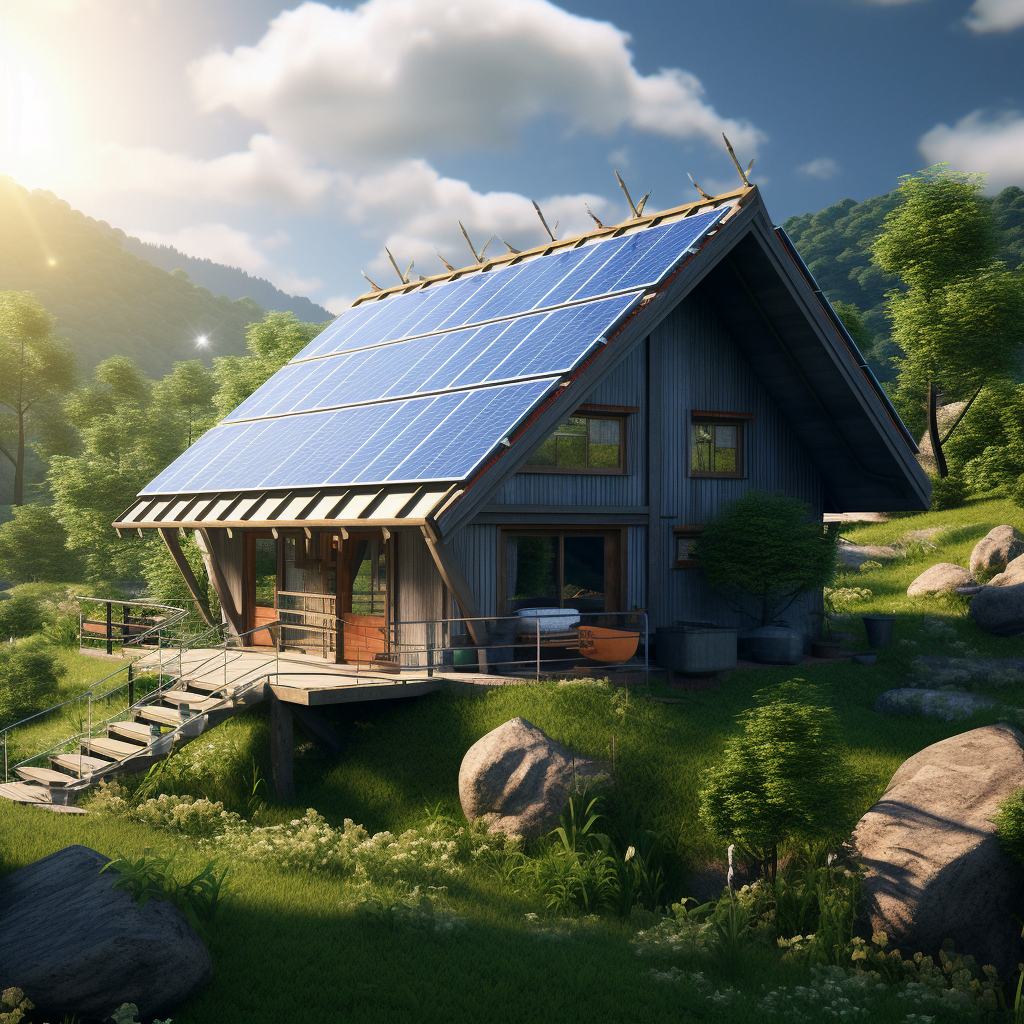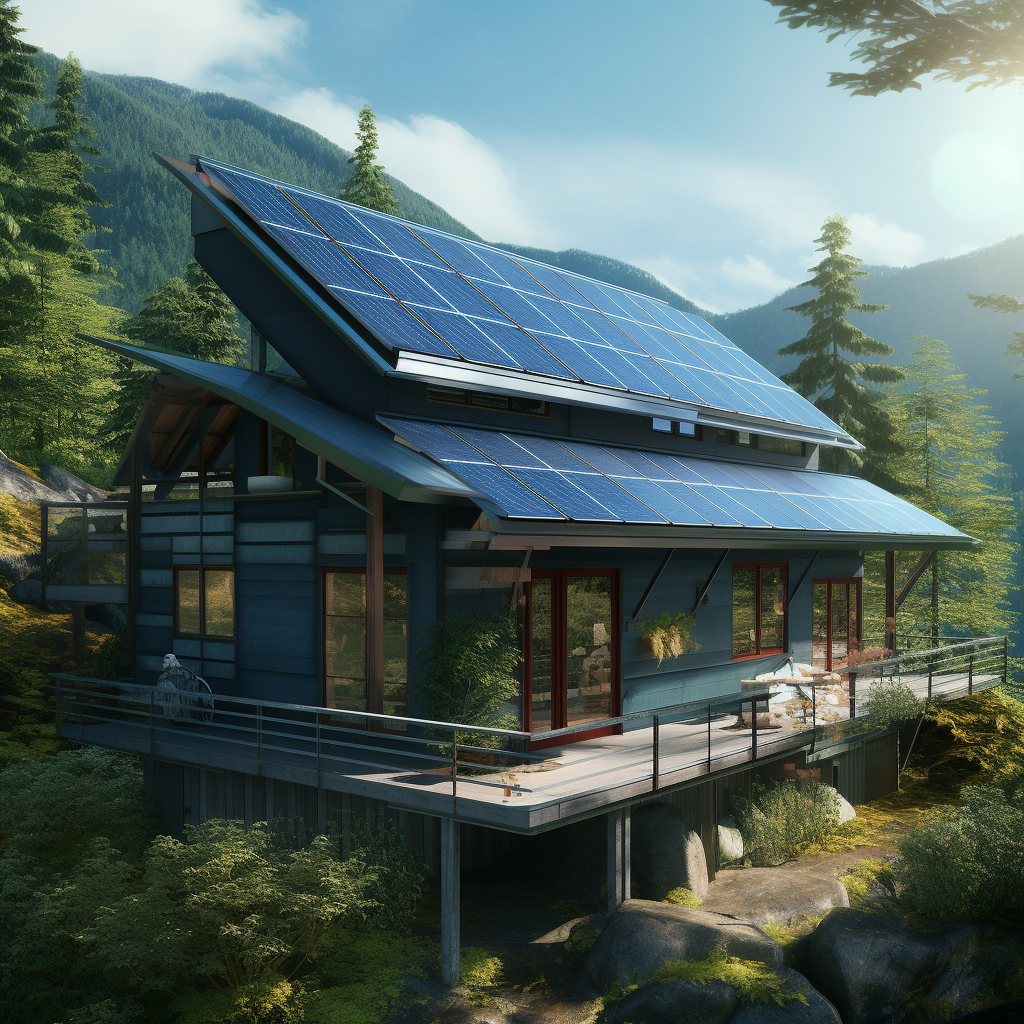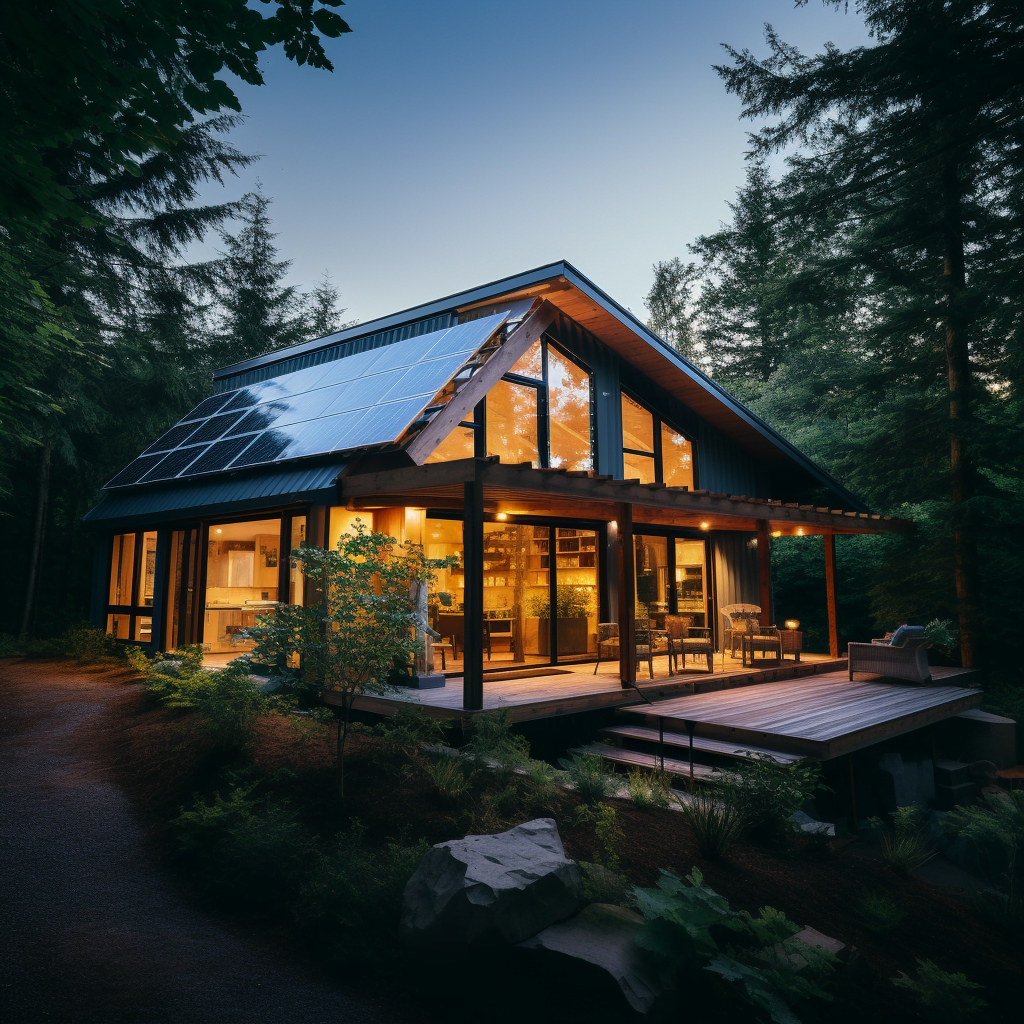Have you ever considered going off grid and living independently? One of the key components of off grid living is solar panels. They provide a sustainable and renewable source of electricity. But have you ever wondered how long these solar panels actually last? Well, in this article, we’re going to delve into the lifespan of solar panels and provide you with all the information you need to know.
Solar panels are designed to be durable and long-lasting, but their lifespan can vary depending on a few factors. On average, solar panels have a lifespan of about 25 to 30 years. However, with proper maintenance and care, they can last even longer. This means that once you install solar panels, you can enjoy free electricity for several decades!
The lifespan of solar panels is mainly determined by their degradation rate. Over time, solar cells can degrade due to factors such as exposure to ultraviolet radiation, temperature fluctuations, and weather conditions. This degradation results in a decrease in the panel’s efficiency and power output. However, it’s important to note that the rate of degradation is relatively slow, and most solar panels come with warranties that cover them for at least 25 years.
In addition to degradation, the overall lifespan of solar panels can also be impacted by factors such as the quality of the panels, the installation process, and the maintenance practices. Investing in high-quality panels and ensuring proper installation and maintenance can significantly extend the lifespan of your solar panels. So, if you’re considering going off grid and using solar panels, rest assured that they can provide you with clean energy for many years to come. In our next article, we’ll discuss some tips and tricks for maximizing the lifespan of your solar panels. Stay tuned!

What are Solar Panels?
Definition and Function of Solar Panels
Solar panels, also known as photovoltaic (PV) modules, are devices that convert sunlight into electricity. They are made up of multiple solar cells, typically made of silicon, that capture the sun’s energy and convert it into usable electrical power. Solar panels play a crucial role in harnessing renewable energy and are widely used for both residential and commercial applications.
Factors Affecting Lifespan
Quality of Materials
The lifespan of solar panels is heavily influenced by the quality of materials used in their construction. Higher quality panels are generally made with better components, such as more durable solar cells and more robust framing materials. Cheaper panels, on the other hand, typically use lower-quality materials, which can lead to shorter lifespans and decreased overall performance.
Maintenance and Cleaning
Regular maintenance and cleaning can significantly impact the lifespan of solar panels. Accumulated dirt, dust, and debris can reduce the amount of sunlight that reaches the solar cells, thereby decreasing their efficiency. It is crucial to clean the panels periodically to ensure maximum performance and longevity. Additionally, inspections and maintenance can help identify any potential issues before they become more significant problems.
Exposure to Weather Conditions
Solar panels are constantly exposed to various weather conditions, which can affect their lifespan. Extreme heat or cold, as well as high humidity levels, can degrade panel performance over time. Additionally, exposure to intense sunlight, strong winds, and hailstorms can cause physical damage to the panels, reducing their effectiveness and potentially shortening their lifespan.
Average Lifespan of Solar Panels
Typical Lifespan of Solar Panels
On average, solar panels can last anywhere from 25 to 30 years. This lifespan is based on panels that have been properly installed and maintained. However, it is important to note that some panels may continue to produce electricity even after this period, albeit with reduced efficiency. Proper care and attention can significantly extend the lifespan of solar panels beyond their typical lifespan.
Variations based on Panel Type
The type of solar panel can also impact its lifespan. Monocrystalline panels, which are made from a single crystal structure, are highly efficient and typically have a longer lifespan compared to other panel types. Polycrystalline panels, made from multiple crystal structures, have a slightly shorter lifespan but are more cost-effective. Thin-film panels, which are generally less efficient, also have a shorter lifespan and may need to be replaced sooner.
Monitoring Panel Degradation
Signs of Panel Degradation
Over time, solar panels may experience degradation, reducing their overall efficiency. Some common signs of panel degradation include a gradual decrease in electricity production, visible discoloration or damage to the panel surface, and the appearance of hotspots. It is essential to monitor these signs as they indicate the need for further inspection and potential maintenance or replacement.
Periodic Inspections
Regular inspections are crucial to identify any issues with solar panels and take appropriate measures before they worsen. During inspections, a professional can check for any physical damage, verify the performance of the panels, and assess their overall condition. These periodic inspections help ensure that the panels continue to operate optimally and extend their lifespan.

Maximizing Solar Panel Lifespan
Proper Installation
Proper installation is a critical factor in maximizing the lifespan of solar panels. The panels should be securely mounted on a structurally sound surface, ensuring they are protected from severe weather conditions and potential damage. Certified installers should be employed to guarantee that the panels are correctly connected and positioned for maximum sunlight exposure.
Regular Maintenance
Regular maintenance is key to extending the lifespan of solar panels. This includes cleaning the panels to remove any dirt, dust, or debris that could hinder their performance. Additionally, checking and tightening all connections, inspecting wiring for any signs of damage, and monitoring the overall performance of the system will help maintain the panels’ efficiency and overall lifespan.
Optimizing Panel Usage
Optimizing the usage of solar panels can also help extend their lifespan. By using energy-efficient appliances and implementing energy-saving practices, such as turning off unnecessary lights and appliances, you can reduce the strain on your solar panels. This results in less wear and tear and can contribute to a longer overall lifespan.
Effects of Climate on Lifespan
Extreme Temperatures
Extreme temperatures, both hot and cold, can impact the lifespan of solar panels. Excessive heat can cause the panels to overheat, reducing their efficiency and potentially leading to permanent damage. Similarly, extremely cold temperatures can impact the performance of solar panels and increase the risk of physical damage. Proper installation and regular maintenance can help mitigate the effects of extreme temperatures.
Humidity and Moisture
High levels of humidity and moisture can also affect the lifespan of solar panels. Excess moisture can seep into the panels, causing corrosion and electrical issues. The accumulation of moisture can also lead to the growth of mold or mildew, further degrading the panel’s performance. Ensuring proper sealing and ventilation can help prevent moisture-related issues and extend the lifespan of solar panels.
Impact of Snow and Hail
Solar panels are designed to withstand various weather conditions, including snow and hail. However, heavy snowfall or large hailstones can cause physical damage to the panels or their frames. Regular inspections after severe weather events are essential to assess any potential damage and address it promptly to prevent further issues and maximize the lifespan of the panels.

Technology Improvements
Advancements in Solar Panel Technology
Advancements in solar panel technology have contributed to the improved overall lifespan of solar panels. Newer panels are often more efficient, durable, and better equipped to withstand various weather conditions. These advancements, such as improved solar cell materials and enhanced coatings, enhance the overall performance and longevity of solar panels.
Longer-lasting Panel Materials
The materials used in solar panel production have also evolved over time, resulting in longer-lasting panels. For instance, the use of higher-grade silicon in solar cells can improve resistance to degradation and enhance the overall lifespan. Additionally, improved frame materials, such as corrosion-resistant aluminum, contribute to the long-term durability of solar panels.
Replacement and Disposal
Indications for Panel Replacement
There may come a time when solar panels need to be replaced, even if they have not reached their typical lifespan. Some common indications for panel replacement include significant physical damage, severe degradation resulting in inefficient performance, and outdated technology. It is essential to consult with a professional to assess whether replacement is necessary and to ensure proper disposal of old panels.
Environmental Impact and Recycling
Disposal of solar panels requires careful consideration of their environmental impact. Solar panels contain various materials, such as glass, silicon, and metals, that can be recycled. Recycling programs specifically designed for solar panels ensure that these valuable resources can be recovered and reused. Proper disposal and recycling of solar panels support sustainability and minimize environmental harm.
Financial Considerations
Return on Investment
When considering the lifespan of solar panels, it is crucial to assess the financial benefits and return on investment. The cost of installing solar panels is often offset by long-term electricity savings. By maximizing the lifespan of solar panels, you can derive more financial benefits from your initial investment.
Insurance Coverage
Having adequate insurance coverage is essential to protect your solar panels against potential damage or loss. Confirming that your solar panels are covered by your homeowner’s insurance or a specific solar panel insurance policy can provide added peace of mind. In the event of damage or degradation, insurance coverage can help offset the cost of repairs or replacement.
Conclusion
Solar panels offer a sustainable and renewable energy solution for both residential and commercial applications. By understanding the factors that impact their lifespan and implementing proper installation, regular maintenance, and optimization strategies, you can maximize the longevity and performance of your solar panels. Additionally, advancements in technology and the availability of recycling programs contribute to a more sustainable future for solar energy. With proper care and attention, solar panels can continue to generate clean electricity for many years, providing numerous environmental and financial benefits. So, invest in solar panels and enjoy the long-lasting benefits they bring to your energy needs.




